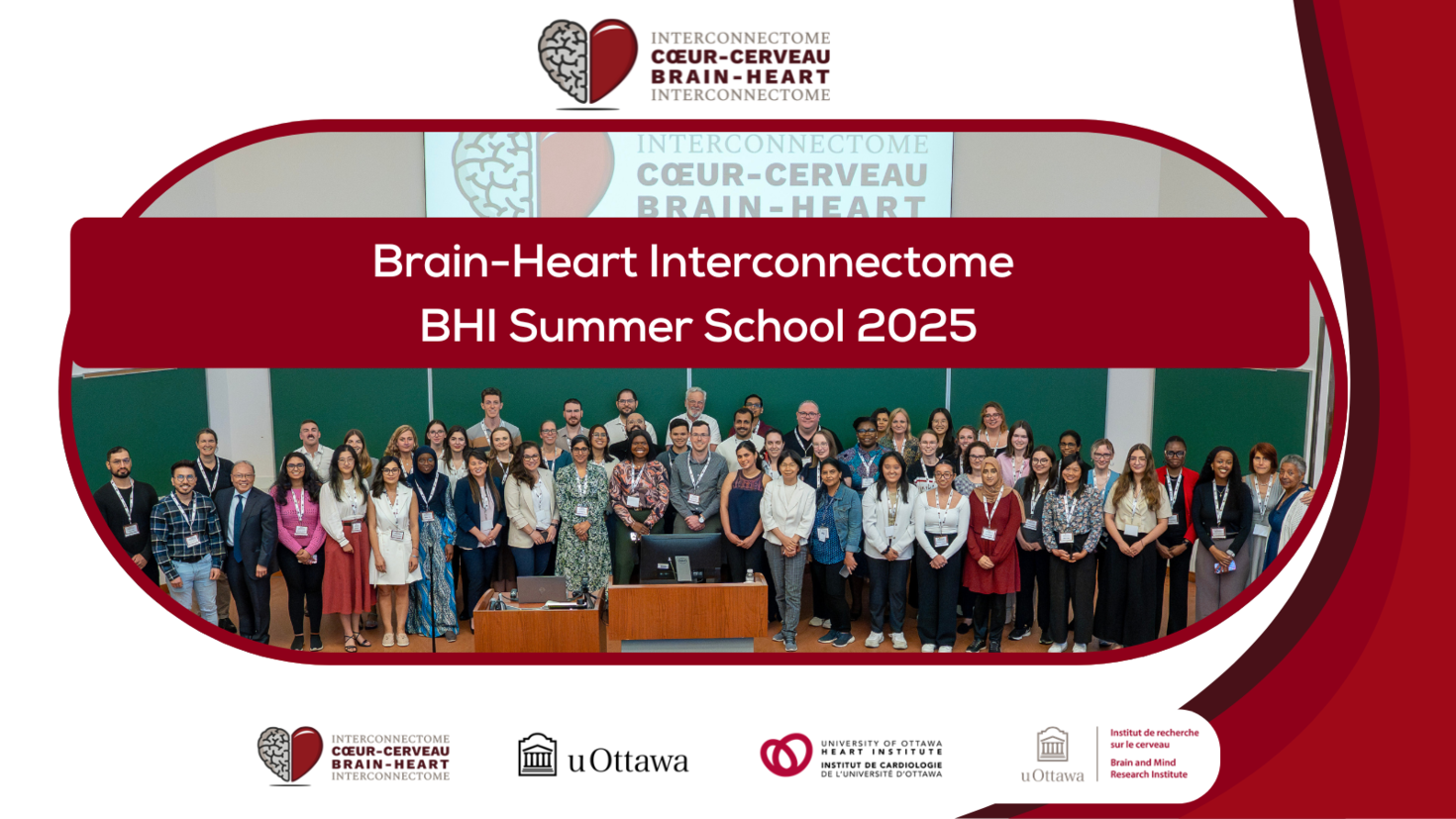The program emphasized transdisciplinary approaches to research and real-world applications to bring tangible results to patients with brain and heart conditions. Workshops were centered on the following learning outcomes: transdisciplinary brain-heart research, AI in brain-heart research, career pathways and development, equity and inclusion, innovation and commercialization, and trainee presentations. This event fostered collaboration, curiosity, and community building to help shape the next generation of scientific leaders in brain-heart science.
Advances in Brain-Heart Research
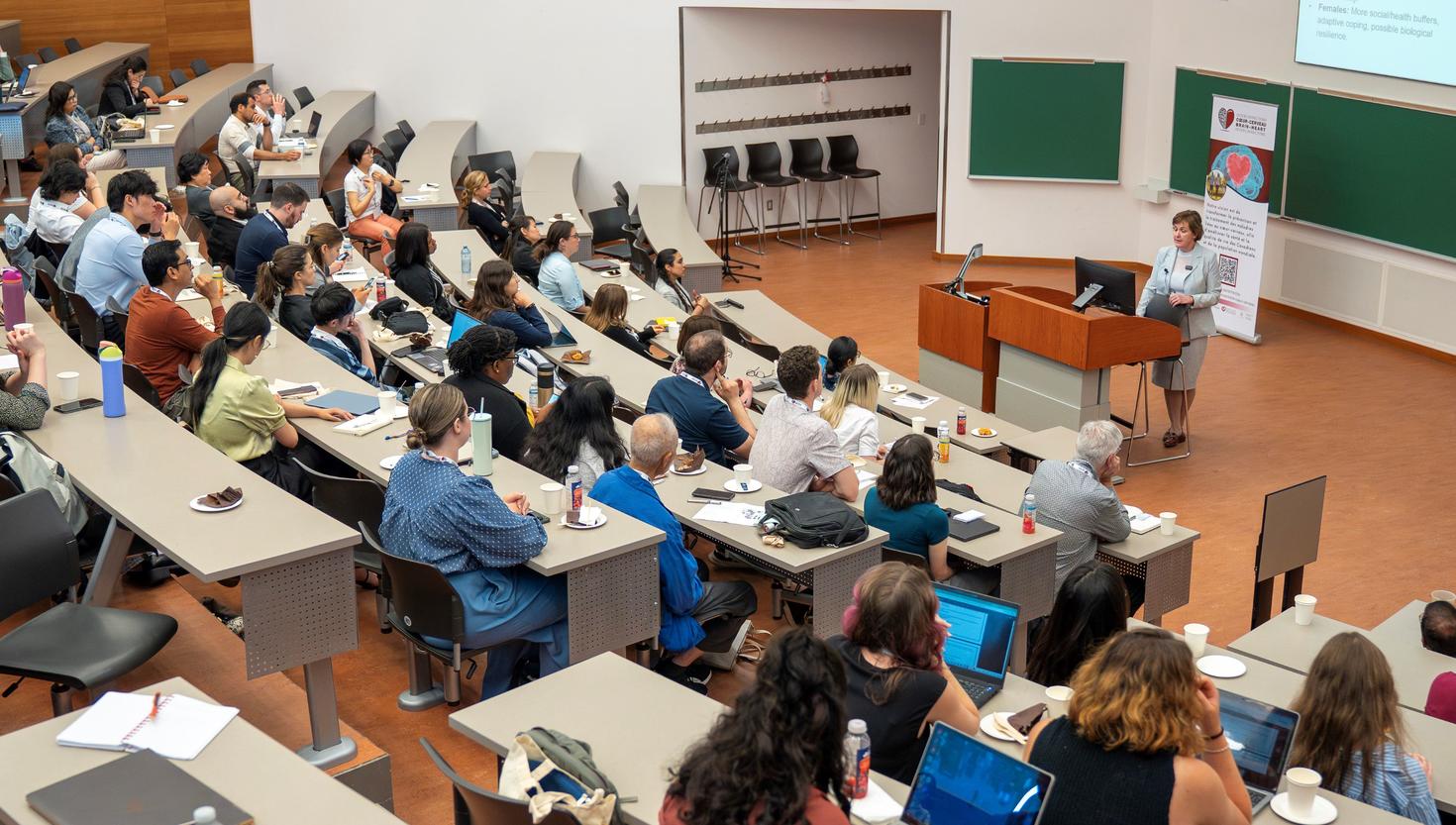
Research seminars brought together leading experts who explored the complex relationships between neurological and cardiovascular health. Drs. Katey Rayner, Jodi Edwards, and Louis Pilote discussed advances in understanding how inflammation, stress, sex differences, and imaging techniques are deepening our understanding of brain-heart interactions. Dr. Kevin Boczar shared results from the CADENCE clinical trial, while talks by Drs. Rhian Touyz, Thomas Durcan, Anthony Rosenzweig, and Hanns Lochmueller covered small vessel disease, Parkinson’s disease modeling with brain organoids, and cellular senescence.
Complementing these talks was a practical workshop on research data management, led by Open Science Methodologist, Edward Xu, who taught attendees essential skills for analyzing complex datasets. Parallel to this, the AI in Health Research sessions showcased applications of machine learning in healthcare, with Drs. Khaled El Emam and Bahar Taji highlighting both the promising opportunities and challenges of AI integration in clinical research.
“What I found interesting about BHI was that there was a curated group of professionals from MD to PhD, and lots of post doc students that were talking about their research and experience about the brain and the heart and how they are connected."
Kimia Nemovi, 2nd year master's student in Speech Pathology at the University of Ottawa
“The thing that I found the most interesting today was seeing how many ways there are to study the brain and the heart. There are so many ways to impact the field."
Stephan Said, master's student studying cognition and how it relates to heart failure at the University of Montreal
Professional Development
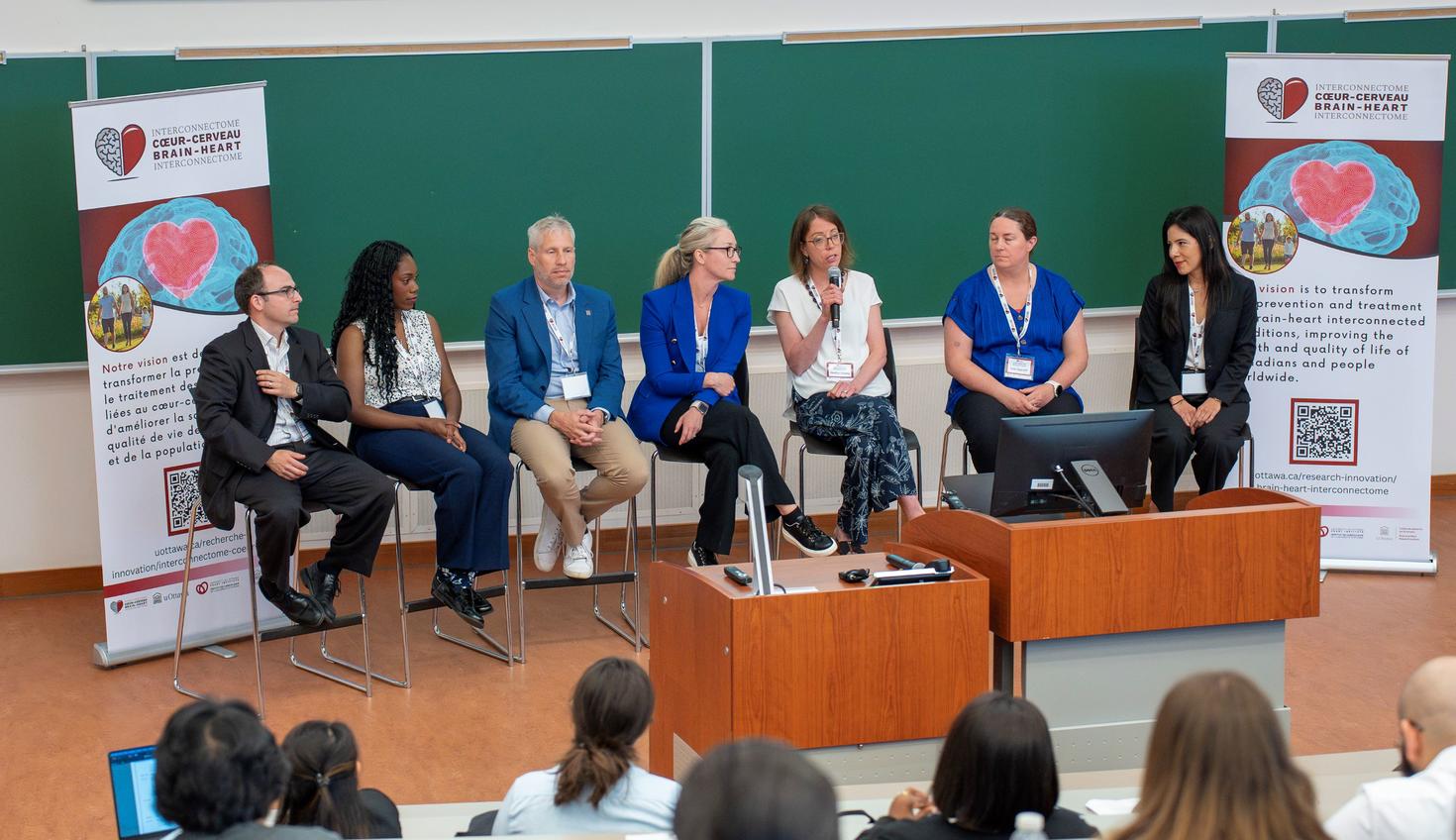
Career development is an important part of research students' path to success, within or beyond academia. It was a central focus, starting with Dr. Reinhart Reithmeier’s session emphasizing the value of structured mentorship and strategies for exploring diverse scientific career paths. A Career Pathway Panel featured nine professionals from academia, biotech, and health innovation who shared practical insights into navigating research careers, entrepreneurship, and commercialization. Workshops such as Writing for Impact and Clinical Guideline Assessment Using AGREE II provided attendees with hands-on experience to improve scientific writing and critical appraisal skills.
Additional sessions on writing the new Tri-Agency narrative CV, scientific branding, commercialization, and intellectual property offered tools for building a successful professional profile. The event also included a dedicated workshop on science communication, led by Krista Lamb, who highlighted storytelling’s role in engaging public audiences and amplifying research impact. Beyond the workshops, trainees also engaged in networking opportunities and connected with peers, mentors, and experts across various fields, including an evening networking social.
“It provided an opportunity to connect with other trainees who are doing awesome work in different areas of research from molecular research to clinical research, so it has been very educational. I also made some great connections which I hope to keep in touch with and potentially collaborate with in future research.”
Antonia Aina, PhD(c), studies how music impacts movement within the stroke population at the University of Toronto.
Equity and Inclusion and Trans-disciplinary Approaches
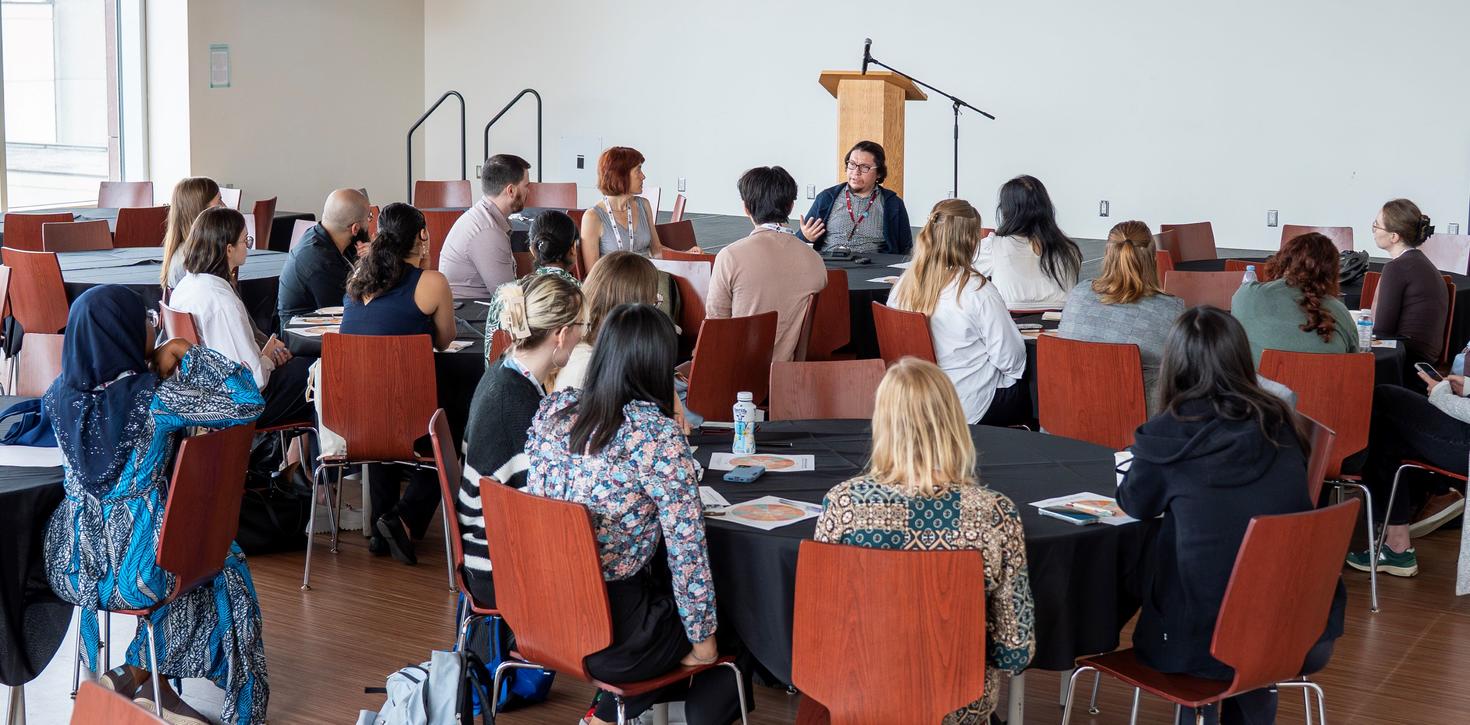
The program integrated strong themes of equity, inclusion, and collaborative science. In the Mobilizing Knowledge for Impact session, speakers Meghan McMahon and Dr. Sheldon Tobe discussed bridging research evidence and clinical practice through effective guidelines. Workshops on anti-ableism and accessibility, led by Drs. Emilio Alarcon and Marie-Katherine Waller, addressed the importance of creating inclusive research environments. Additionally, a co-production workshop facilitated by Dr. Krystina Lewis emphasized the critical role of patient-partners in advancing equitable and transdisciplinary research. These sessions reinforced the commitment to fostering a research culture that values diversity, accessibility, and meaningful collaboration across disciplines and communities.
“What I really appreciated about the event was the brilliant people out there and the common values that emerged from this event: curiosity and empathy. I feel really connected to this new community and I feel positive about what we can do together.”
Nadia Goulet, master's student in clinical science related to neurocognition at the University of Montreal.
Trainee Presentations
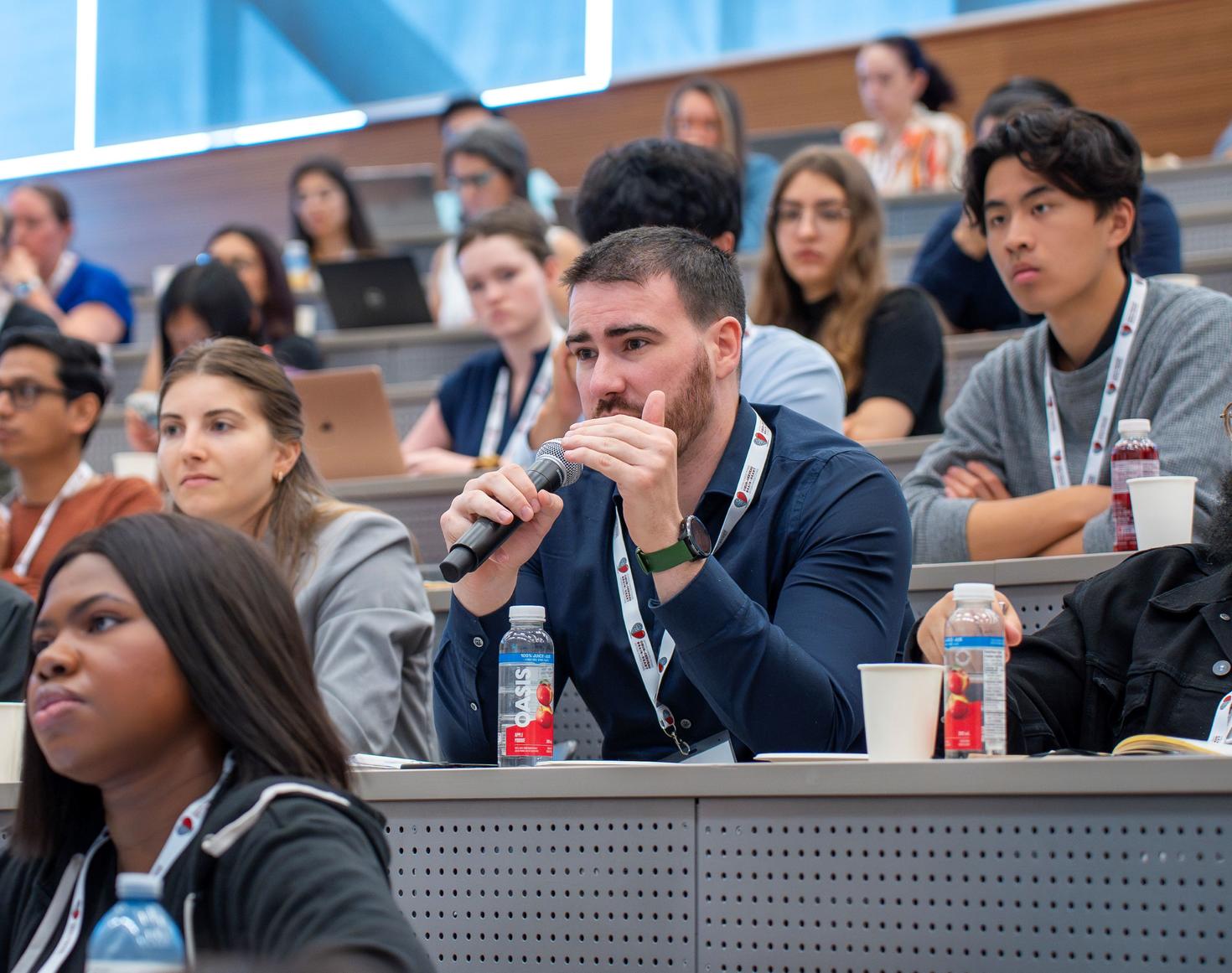
One of the highlights was a session that featured Trainee Rapid Fire Presentations, where trainees presented their current research projects in brain-heart science in three minute, high-impact talks. 21 presentations were evaluated by a panel of judges for clarity, delivery, and impact. Congratulations to Tetiana Poliakova (1st place), George Pearlman (2nd place), and Camille Rousseau (2nd place). Two additional trainees received an IDEAS award for their work in inclusion, diversity, equity, accessibility, and social justice (IDEAS) in their research. The IDEAS award was sponsored by Dr. Ulrich Aivodji. Congratulations to Laura Fitzgibbon-Collins (1st place) and Lisa-Marie Maukel (2nd place).
Closing Remarks
The BHI Summer School two-day event showcased cutting-edge research and provided actionable training for researchers at all stages - emphasizing interdisciplinary collaboration, innovation, and societal impact on brain-heart health. It marks an important event that demonstrates the progress that the BHI is making to revolutionize brain-heart research. A big thank you to all the trainees that attended and congratulations to the rapid-fire presentation awardees. The event brought in trainees from across the country, from the University of British Columbia to the University of Saskatchewan, to McGill University and the Memorial University of Newfoundland. Trainees described the experience as invaluable to their academic and career journeys.
“One of the things I love about BHI summer school is the diversity of topics, the audience, and the lecturers. I would recommend this event for people to attend because it’s a great way to network and connect with people. Who knows where it will lead in the future!”
Aisha Raji, 5th year PhD student in biomedical engineering at the University of Toronto
A special thank you to the BHI planning committee for making this event possible and everyone who was part of BHI Summer School 2025. Please see our program for a detailed schedule and list of speakers. Stay tuned for our next brain heart summer school!
